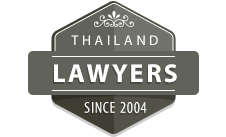When you retire in Thailand you are allowed to bring in your personal effects from your home country. There are time limits to bring in your goods duty free. Retirement starts with good arrangements and assistance. The following list is from Thai Customs and the procedures are listed for importing your goods. If you are not certain how to arrange this speak to one of our attorneys who will be able to assist you while we apply for your retirement visa. Personal Effects refer to items clearly identifiable as personal use, such as clothes, shoes, books, etc. These items at the time of his/her entry into the Kingdom of Thailand are exempted from customs duties. However, such items do not include automobiles, weapons and ammunition, and food items. If not certain speak to the lawyers who did your retirement visa application as they normally know how to bring in your goods duty free within 6 months after your visa has been issued.
Personal effects not granted exemption from payment of customs duty
Pets. Pets brought into the Kingdom of Thailand are not exempted from customs duties. A permit must be granted from the Livestock Department prior to the date of entry.
Food. Any person wishing to bring food items into the Kingdom of Thailand must obtain a permit from the Food and Drug Administration, Ministry of Public Health.
Weapons. A permit must be granted from the Department of Provincial Administration.
Automobiles. A permit must be granted from the Commerce Ministry and the Department of Industrial Works, Ministry of Industry.
Household Effects refer to other properties not considered personal effects and which were in the owner’s possession prior to his/her change of residence, such as televisions, refrigerators, air conditioners, household decorations, etc., which have been previously used. In the case of individuals entering the Kingdom of Thailand, only one unit each of such item is eligible for tax and duty free allowance. In the case of a family change of residence, two units each of the items will be allowed to bring in tax and duty free. Items may be imported free of tax. Any excess unit shall be subject to regular taxes and are charged according to the most highly priced unit or the unit subject to duties the highest tax rate respectively.
Items must arrive in the Kingdom of Thailand not more than one month prior to the owner’s arrival or not more than 6 months after his/her arrival and/of the necessary permits are obtained.
Documentation
1. Passport
2. Bill of Lading or Airway Bill
3. Invoice (if any)
4. Delivery Order
5. Inventory or purchase document
6. Customs Permit (if items shipped by air)
7. Identity Card (in the case of personal items)
8. Proof of Change of Residence
8.1 Foreigners must have documentary proof of having received permission to work or reside in Thailand for not less than 1 year. This includes a work permit from the Department of Employment, Labor Ministry, of a visa from the Immigration Department.
8.2 Thai nationals must present proof of having lived abroad for a period of not less than one year.
9. If you are unable to complete these customs procedures yourself, you must provide a letter of proxy appointing someone else to act on your behalf.
Clearance Procedures
1. The importer/agent submits documents for inspection at the Customs Department/port of entry.
2. Customs officials complete importation forms, determine eligibility, and assess duties, if any.
3. Importation forms are returned to the importer bringing goods into the country, who then takes them to be recorded and pay customs duties, if any.
4. Importer/Agent Collects Items from the port of entry.


Leave Your Comment